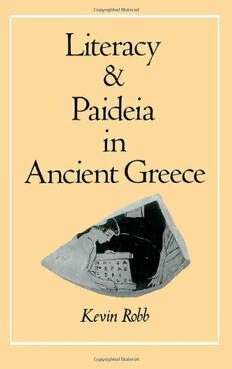
Literacy and Paideia in Ancient Greece PDF
322 Pages·1994·21.174 MB·English
Most books are stored in the elastic cloud where traffic is expensive. For this reason, we have a limit on daily download.
Preview Literacy and Paideia in Ancient Greece
Description:
This book examines the progress of literacy in ancient Greece from its origins in the eighth century to the fourth century B.C.E., when the major cultural institutions of Athens became totally dependent on alphabetic literacy. By introducing new evidence and re-evaluating the older evidence, Robb demonstrates that early Greek literacy can be understood only in terms of the rich oral culture that immediately preceded it, one that was dominated by the oral performance of epical verse, or "Homer." Only gradually did literate practices supersede oral habits and the oral way of life, forging alliances which now seem both bizarre and fascinating, but which were eminently successful, contributing to the "miracle" of Greece. In this book new light is brought to early Greek ethics, the rise of written law, the emergence of philosophy, and the final dominance of the Athenian philosophical schools in higher education.
See more
The list of books you might like
Most books are stored in the elastic cloud where traffic is expensive. For this reason, we have a limit on daily download.
